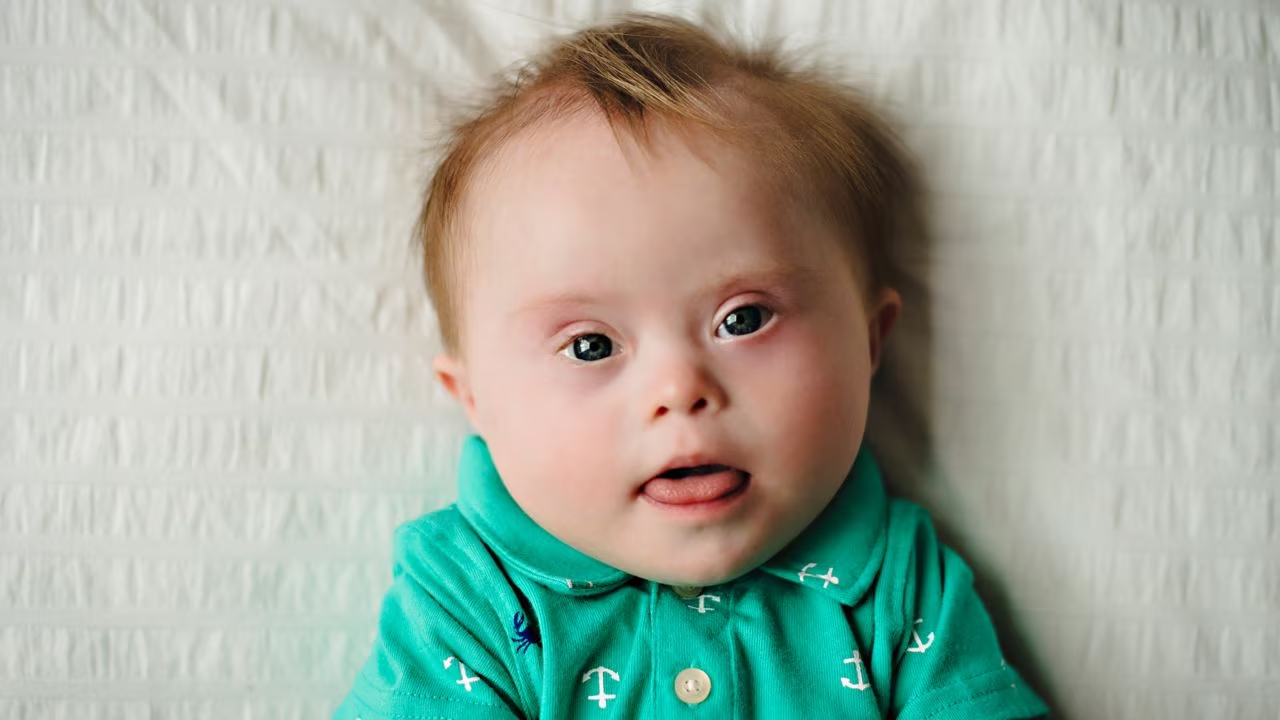
DiYES International School – Down Syndrome is a genetic condition that affects a child’s development. It is caused by an extra copy of chromosome 21. This additional chromosome impacts physical growth, cognitive ability, and health. Early intervention plays a crucial role in improving the quality of life. Families and healthcare providers work together to provide support from an early age. Screening tests during pregnancy help detect the condition before birth. Early diagnosis allows families to prepare emotionally and access resources. Therapies and education programs are designed to meet each child’s unique needs.
Down Syndrome occurs in approximately 1 in every 700 births worldwide. The condition leads to various developmental challenges, including delays in speech and motor skills. Children with Down Syndrome may have distinct facial features and experience mild to moderate intellectual disabilities. Health problems such as heart defects and hearing loss are common. However, medical advancements have significantly improved life expectancy and health outcomes. Early care can address many of these issues effectively. Families play a vital role in fostering a nurturing and stimulating environment. Emotional support and education are equally important for both children and caregivers.
“Read about: Deviated Nasal Septum in Kids: When to Seek Medical Help”
Prenatal screening helps identify the risk of Down Syndrome during pregnancy. Blood tests and ultrasound scans are the most common methods used. These tests estimate the likelihood but do not provide a definitive diagnosis. When results show a high risk, diagnostic tests like amniocentesis or chorionic villus sampling can confirm the condition. Early detection allows parents to understand the needs of their child. It also helps medical teams plan for necessary interventions immediately after birth. Knowledge gained through screening reduces anxiety and improves readiness. Ethical counseling is provided to help parents make informed decisions.
Once diagnosed, early intervention programs are essential for developmental progress. These programs include speech therapy, occupational therapy, and physical therapy. They focus on building communication, motor skills, and daily living abilities. Tailored educational plans help children learn at their own pace. Early support encourages independence and social skills. It also boosts self-esteem and reduces behavioral challenges. Collaboration between therapists, educators, and families ensures the best outcomes. Access to resources like support groups helps families feel connected. Early intervention creates a foundation for lifelong learning and growth.
“Read more: Economic Empowerment: Reducing Trafficking Through Sustainable Income”
Families of children with Down Syndrome often face emotional and practical challenges. Support networks provide valuable information and encouragement. Parent groups and online communities share experiences and resources. Educational workshops empower families with knowledge about the condition. Schools and local organizations can offer inclusive programs. Awareness campaigns promote acceptance and reduce stigma in society. Creating a supportive environment benefits the child and family as a whole. Advocacy for rights and access to healthcare is crucial. Community involvement helps build a more inclusive world for everyone.
Children with Down Syndrome require regular health check-ups and monitoring. Common concerns include heart defects, thyroid problems, and vision or hearing issues. Early detection and treatment improve overall health outcomes. Vaccinations and preventive care reduce the risk of infections. Specialized healthcare teams guide families through medical needs. Transitioning from pediatric to adult care is important as children grow. Health education helps individuals manage their conditions independently. Continued research contributes to better treatments and understanding. Comprehensive medical care enhances the quality and length of life.
Education is a vital part of growth for children with Down Syndrome. Inclusive classrooms allow social interaction with peers. Special education services address individual learning styles. Adaptive teaching methods support academic achievement. Life skills training prepares young adults for independent living. Vocational programs and job coaching promote employment opportunities. Technology aids communication and learning in innovative ways. Continuous learning encourages personal fulfillment and confidence. Society benefits when everyone has access to education and opportunities.
Down Syndrome is a lifelong condition that affects development and health. Early intervention significantly improves outcomes for children. Prenatal screening helps families prepare and plan for care. Supportive families and communities play a key role in success. Access to medical care and education fosters independence and well-being. Continuous research and awareness increase understanding worldwide. Together, these efforts create a better future for individuals with Down Syndrome.